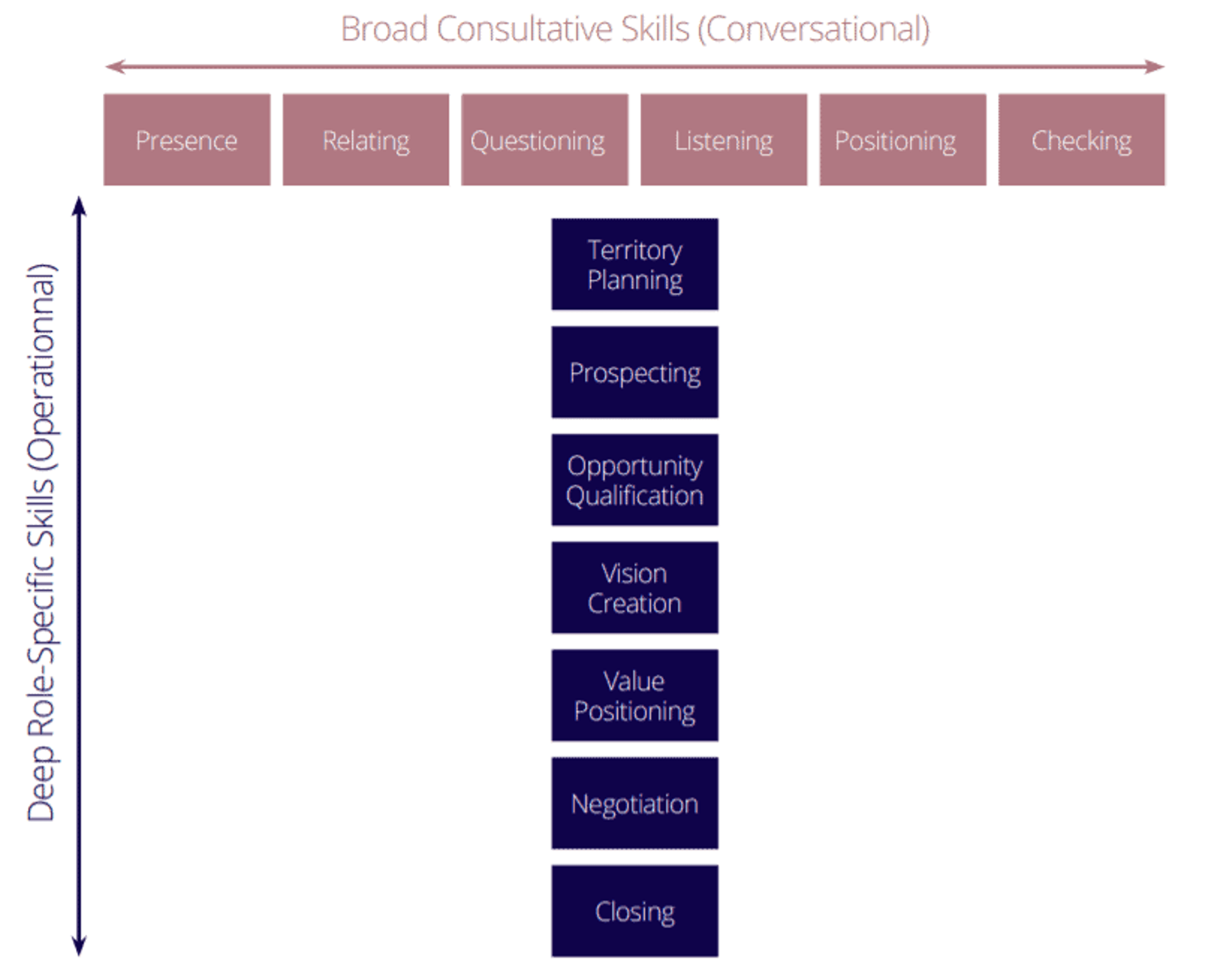Every Closed Deal Begins with Soft Sales Skills Training
Customer conversations

According to researchers at Stanford University, in a knowledge economy, there is “a greater reliance on intellectual capabilities [soft skills] than on physical inputs or natural resources.” This fact means that as the knowledge economy grows sales teams must become increasingly focused on building soft sales skills.
Sales soft skills training creates a competitive advantage because it empowers sales reps to demonstrate emotional intelligence which is broadly applicable to a range of challenges. However, many sales leaders remain unclear on how to bring those capabilities into their businesses.
This gap prevents team members from being able to fully leverage the value of their role-specific selling capabilities and product knowledge.
Soft Selling Skills Unlock Role Specific Capabilities
The value of soft skills has renewed interest in McKinsey's concept of “T-shaped” skills. This idea suggests that the most effective individuals possess cross-discipline soft skills balanced with deeper role-specific competencies.
In the graphic below, the horizontal line of the T represents soft sales skills and the vertical line represents the depth of expertise in a single area of selling.

In the selling industry, this model represents a simple, but often unseen truth; the soft sales skills in the horizontal are what allow a sales opportunity to reach a point where the role-specific skills can be applied. Without soft skills, deeper role-specific skills offer little advantage.
Consider how communication skills like active listening impact the sale:
A sales professional who has not mastered active listening will miss critical details that enable them to properly position the solution later. A sales professional might have a deep reservoir of knowledge pertaining to a product or service, but without capturing the details underpinning the customer’s needs, they will not know which aspects of the solution to highlight.
Putting Sales Soft Skills Training to Work
To benefit from investing in developing soft sales skills, organizations need to ensure they are applied across operational, conversational, and analytic selling activities throughout the sales process. The strongest benefit to this approach is that it simplifies the sales growth equation.
By building the core of the selling methodology around soft skills, sales managers, and sales coaches can bring scalable change to an organization. Doing so means leveraging soft selling skills in three ways that adapt to the modern sale.
Embracing Change
Soft selling skills are designed to work in a changing environment. Specifically, building rapport, handling objections, questioning, listening, and checking all aim to understand the dynamics of the customer’s situation. Sales professionals who focus on learning from the customer avoid the common mistake of positioning a solution too early.
Differentiating Strengths
CRM and workflow tools offer considerable benefits to the selling organization. These benefits, however, are enjoyed by most sales professionals. As a result, the potential for sales success using a strategy that is anchored in technology is limited. What brings renewed power to these tools are the people behind them. When sales professionals combine the EQ of soft skills with hard skills, a sales organization becomes better able to selectively leverage the technological capabilities when and where they matter most: in front of the customer.
Uniting Capabilities
As selling organizations grow and change, they often shed characteristics and acquire new ones. While this is a natural part of the development process, it can often lead to a lack of uniformity across the organization. With a focus on soft selling skills, the organization can orient itself around a “true north” that remains unchanged. When a team sees that every initiative ties to a clear and immovable center, they are better able to understand the intent of the plan and why it matters. The result is sustained behavior change.
Get industry insights and stay up to date, subscribe to our newsletter.
Joining our community gives you access to weekly thought leadership to help guide your planning for a training initiative, inform your sales strategy, and most importantly, improve your team's performance.






